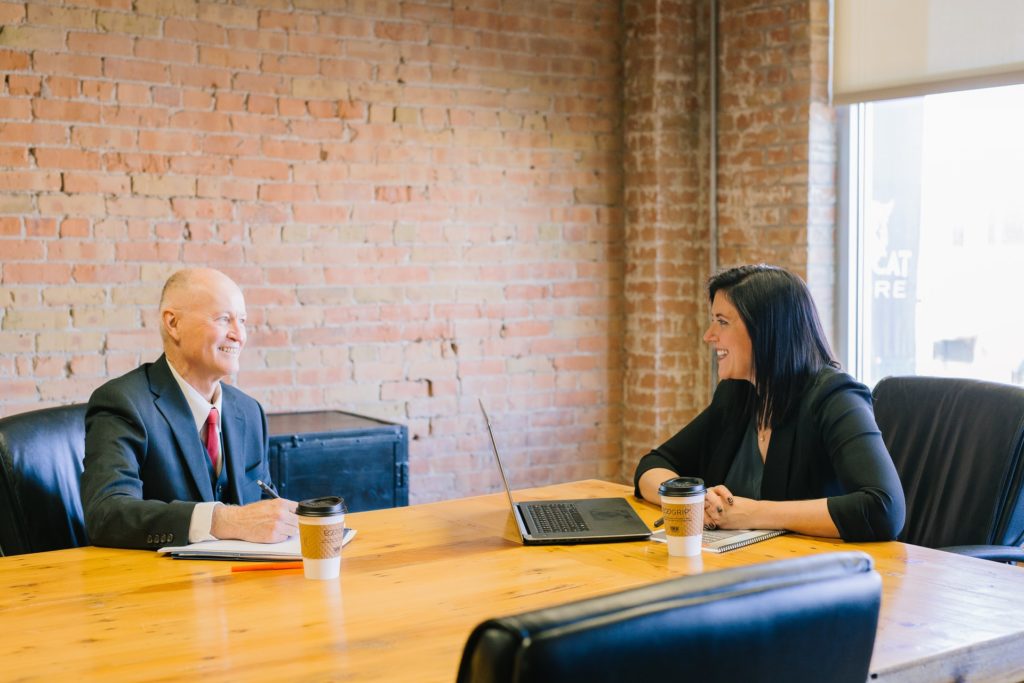When it comes to job interviews, one of the biggest mistakes a lot of first-time job seekers make is relying too heavily on their credentials. Yes, you might have graduated at the top of your class, have a couple of years of on-the-job training under your belt, and maybe some extracurriculars to brag about.
But it will do you best to remember that being in a job means more than just doing your job; you need to work with other people in team efforts. Sure, you can pull off a difficult project, but are you going to be able to work with your manager? Will you be able to keep morale up when projects get difficult? Are you going to be a valued member of the team because of what you can do and how you do it?
During job interviews, recruiters need to know if you’re going to play nice during team-building exercises and not just show-off your leadership skills. Basically, during job interviews, you need to be likeable as a person. Here are some key points to remember:
Genuine Kindness and Friendliness Goes a Long Way
Good recruiters start the interview process long before you sit across them and start answering their questions. In fact, many interviewers have developed the habit of basing a few key deciding factors on how prospective employees interact with other people in the building.
It’s like that old dating tip about judging your date on how they treat the service staff. If you’re nice to your interviewer but are rude to janitors or security guards, you’re not showing the kind of genuine kindness and friendliness that goes a long way to helping you succeed in any job. Many companies ask receptionists how applicants interact with them just to get a gauge of what that person will be like if they started working there.
The opinions of the receptionist can also bear heavily on how well your interview is going to go. You’d be surprised at how rude some people can be toward the front desk, and you’d be even more surprised at how much of that reaches HR. Think of yourself as a house, and your general demeanor is your curb appeal: it helps convince people to get through the door, and your CV and accomplishments will show your competence.
So remember: be kind, be friendly, and don’t be a jerk. Very simple attitude adjustments that go a very long way to scoring you some positive points for the company you’re applying for.
Don’t Be Afraid of Small Talk!
A lot of first-time job seekers think that interviews are interrogations: they sit down across a professional who will grill them about what they can or cannot do, and every nervous gesture and filler words are marked down as negatives in some checklist.

But here’s the thing: despite what it’s called, job interviews are more like conversations. Sprinkling in some small talk in between the nitty-gritty is actually a very good thing for a number of reasons.
First, small talk allows both you and your interviewer to relax a little, helping you build a better rapport between the two of you and helps you connect to each other as human beings and not just potential employee/employer. It’s important for your interviewer to see you as a person, and it’s important that you see your interviewer as more than just a faceless corporate executive.
If you’re both comfortable, that’s a good sign that their company doesn’t have a toxic company culture, and that you’ll probably fit right in.
Secondly, the small talk also helps your interviewer gauge your personality a bit better: how do you react to major news headlines? Are you a fan of sports? What did you think of the new blockbuster movie in cinemas? Letting your interviewer know your thoughts and opinions about these things helps you be more likeable because it shows you as a multi-faceted person who’s being genuine.
And finally, small talk helps you see what kind of people you’ll be working for. If you feel like your interviewer brushes off your attempts at small talk and wants to stick to the script, maybe this isn’t the company for you as well.
Remember, it’s a two-way conversation: you need to show them you’re a likeable and competent employee, but they have to show you that they’re a company that cares about their employees and that their corporate culture is something that you can mesh with.
Vibe With Your Interviewer
Your manner of speaking can go a long way to being likeable: have you ever noticed how some people just seem to annoy you when you’re talking to them? A lot of the times it’s because they’re not vibing with your speech patterns.
Humans have a tendency to be more receptive to people who match our way of speaking. When a person is talking faster than you are, it feels like they’re jumping all over the place. Conversely, if they’re speaking too slowly, it feels like they’re taking too long to make a point. Vibing with your interviewer’s conversational pace shows two things: you’re comfortable and therefore more likely to be honest, but also, it shows that you’re focused on making them feel comfortable. The latter shows empathy, a sought-after ‘soft skill’ in the corporate world.

It’s not about copying exactly how they talk: rather, it’s about matching the speed of what they’re saying, their tone, and their formality (or informality). It makes for less awkward conversations and shows them you’re great at listening to feedback.
Don’t worry if it takes you a while to get there: you’re not going to vibe with someone right on the get-go. Take a deep breath, take your time, and try to match their pace as best as possible. You don’t want to seem contrived, of course, so don’t be afraid to speed up or slow down when necessary. But in general, it’s always best to vibe with how your interviewer talks.
Lean In. Literally.
Body language plays a crucial role in conversations, and more so in job interviews. Often, many first-time job-seekers are nervous, which is understandable, and while many focus on regulating their manner of speaking to be more clear, they don’t spend enough time with their body language.
Many veteran HR recruiters note that nervous job-seekers often physically freeze up during interviews. There’s nothing wrong with this per se, but if you want to be more relaxed, pay attention to what your body language is trying to say.
The best way to get around this is to lean into the conversation, both figuratively and literally. When you start to answer a question, lean forward ever so slightly. This helps you convince your body to relax, which in turn tells your brain to relax, which in turn makes you more honest and genuine, and frankly, more likeable.
Leaning towards another person while you’re talking is also a good way to subconsciously show the other person that you like them, and in human psychology, we tend to like people who like us, so if you show that you like your interviewer, there’s a good chance they’ll reciprocate.
Mistakes Might Be Made, and That’s Ok!
The biggest mistake a job-seeker will make during their job interview is believing that any slip-up is an unforgivable crime that will cost them the job. Relax! Again, job interviews are conversations: your interviewer already knows what you’re capable of and how competent you are because they have your CV. What they do want to know is who you are as a person.

When we’re being genuine and being ourselves, we’ll have our flaws. Maybe you talk too fast when you get excited, or maybe you tend to raise your voice a volume or two when you’re passionate. If things like that flare up, just apologize and move on. Your personality isn’t being judged by how perfect you are, but rather, how you recover from a mistake.
If you make a faux pas, acknowledge your mistake, apologize genuinely (not profusely), offer a compensatory gesture, and move forward. Do that, and your interviewer is less likely to see your mistake and will instead focus on how likeable you are as a person.
Being likeable in job interviews is a trait that can help you out in life in general: it will make interacting with other people easier, whether it’s applying for a loan or starting a business or engaging with clients, you want them to like you, so learn how to be likeable.





